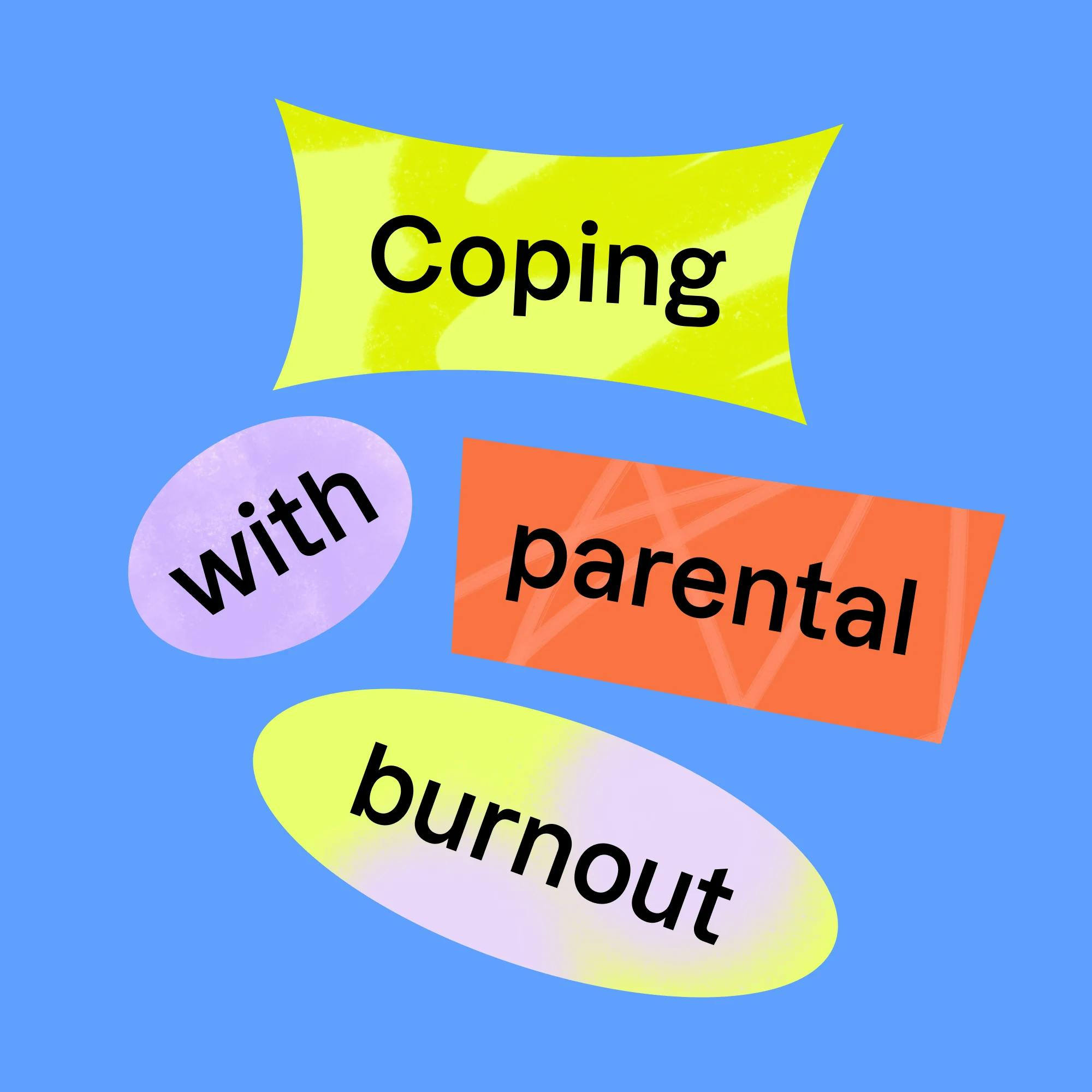
Coping with the News of Your Child’s Diagnosis
 Abby Barnes, M.S., CCC-SLP
Abby Barnes, M.S., CCC-SLP
If your child was recently diagnosed with a condition that affects their speech or communication, it’s normal to feel a range of emotions. From grief, to anger, to confusion, to fear–this is not an easy spot to be in, and your feelings are valid.
Autism, apraxia, speech delays, cognitive delays, and genetic conditions are just some of the diagnoses that can affect a child’s ability to communicate. These conditions also have an impact on other parts of a child’s life, as well as on their families.
As your child's caregiver, you’ve got an important role–although it’s not one you may have pictured yourself in. Your child’s special needs may not be an easy road to navigate. So it’s helpful to learn some techniques for coming to terms with the diagnosis, coping with any challenges, and finding the support you need. A feeling of peace or normalcy may not come overnight, but you will get there. And don’t forget that when you feel well mentally and emotionally, this will help your child, too.
Common feelings and emotions after a diagnosis
Hearing that your child has been diagnosed with autism, apraxia, a developmental delay, or another condition can cause a variety of emotions. Many caregivers of children with special needs describe experiencing grief: mourning what you thought your relationship with your child would look like and what their future would hold.
Many caregivers of children with special needs describe experiencing grief.
It’s also normal to feel overwhelmed. There may be specialists to research, appointments to make, teachers and school staff to meet with, and new terminology to use. You may need to learn to care for and interact with your child in a different way.
Try to take in all this new information a bit at a time, if you can. And while you may feel completely focused on your child’s needs, it’s also important to learn how to cope and take care of yourself. Here are some ways to do that.


1. Find a support group
Whether it’s apraxia, autism, or something else, it may seem like you’re the only one walking through your child’s diagnosis. You may feel isolated from friends or family members who aren’t in the same situation. But while no two people have the same experience, there are more families living with similar diagnoses than you realize.
Joining a support group, either in person or online, can be beneficial for many caregivers. Support group members can understand and empathize with each other’s experiences. While some members’ children may be newly diagnosed, others may have been living with special needs for some time. Hearing these different perspectives can be helpful. And other families may have suggestions for therapies, specialists, and other resources–a valuable source of information. To find a support group, ask your child’s doctor or therapist for recommendations, or search on a social media platform like Facebook for options. The American Speech-Language-Hearing Association offers resources as well.


2. Seek counseling services
It’s important to take care of your child, but it’s equally important to take care of yourself. There are mental health counselors licensed and trained to help caregivers and families walk through difficult times.
Mental health therapy can be expensive, but for many people, it’s more than worth it. Counselors can provide you with specific coping suggestions. And when you feel better, you’re able to be a better caregiver for your child.
When you feel better, you’re able to be a better caregiver for your child.
Check with your health insurance company to learn more about your coverage and find a mental health provider that’s in your plan. A health savings account may also be an option, as therapy services are sometimes covered by these funds. Many therapists offer sliding payment scales based on your income. You might also look into your local community mental health center. Or consider meeting with a therapist online. This option has become more widespread since the COVID-19 pandemic.


3. Learn about your child’s diagnosis
When you feel ready, take some time to research your child’s diagnosis. You can connect with doctors, therapists, parents of children with the same diagnosis, and reputable websites to learn more about what to expect. When you know what your child is experiencing, or what they’re likely to go through, you can stay one step ahead of any challenges that may come.
Learning what services your child may need is a huge part of this. The right support and therapies early on will help your child reach new goals they may not be meeting on their own.
One positive aspect of receiving a diagnosis is that it can help your child qualify for services through health insurance.
One positive aspect of receiving a diagnosis is that it can help your child qualify for services through health insurance. For example, children diagnosed with autism may qualify for more speech therapy treatment per week, or even services like feeding therapy or occupational therapy. These therapies may not have been covered by insurance without the diagnosis.
By learning all you can, you’ll also feel more confident to talk about and advocate for your child’s needs with teachers and other adults in your child’s life. Having a team of support for your child is key.
4. Find joy in unexpected moments
You may need time to grieve what you thought your child’s life would be. But that doesn’t mean there isn’t joy and happiness in the future.
Maybe you always imagined what it would be like to talk with your child, hear their thoughts and opinions, or have them tell you about their day. Now you may not be sure when or if that will happen. Simple things like hearing your child say “Mama” or “Dada” may become your dream. And when that moment happens, the excitement and joy will be real! Expectations change after a diagnosis, but the happy moments are still so sweet–perhaps even more so.
5. Focus on the here and now
This can be hard to do, but remind yourself to focus on the day and the moment that you’re in. Looking to the future too often can cause anxiety. So don’t forget to truly experience daily life with your child. Spend time together, play together, and don’t let the “what ifs?” and “to-dos” take away from those moments. Your time together, right now, matters.


6. Remember–your child is not their diagnosis
A new diagnosis can feel overwhelming and all-consuming. But try to remember that your child is not their diagnosis. It is part of them, and it may affect different aspects of their development. But it is not all of them. Your child is still the child you know and love. The main difference is that now you know what they need and how to help them. And that is actually a very empowering thing!
Does your child need speech therapy?
If your child’s diagnosis affects their communication abilities, don’t wait to reach out to a speech therapist. They can evaluate your child and help them start making progress–while also providing support and guidance for you. The earlier speech therapy intervention can start, the better.
As your child’s parent or caregiver, you are the most important person in their life. They are going to need a steady hand to hold, and by taking care of yourself, you’ll be able to guide them forward. Take a deep breath, take one step at a time, and remember–you can do it!
How Expressable Can Help
Concerned your child isn't reaching age-expected milestones? Looking for communication support from a professional? Expressable is a national online speech therapy practice serving children and adults. We treat all major areas of communication and feeding, offer flexible hours including evenings and weekends, and accept most major health insurance plans. We’re proud to have earned more than 3,000 5-star reviews from our clients (4.9/5 average).
Our therapy model is centered on parent and caregiver involvement. Research proves that empowering caregivers to participate in their loved one’s therapy leads to better outcomes. That’s why we combine live, 1-on-1 speech therapy with personalized education and home practice activities for faster progress.
Communication is more than words. It’s how we share how we feel and show who we are. We’re here to help you or your child do just that.








